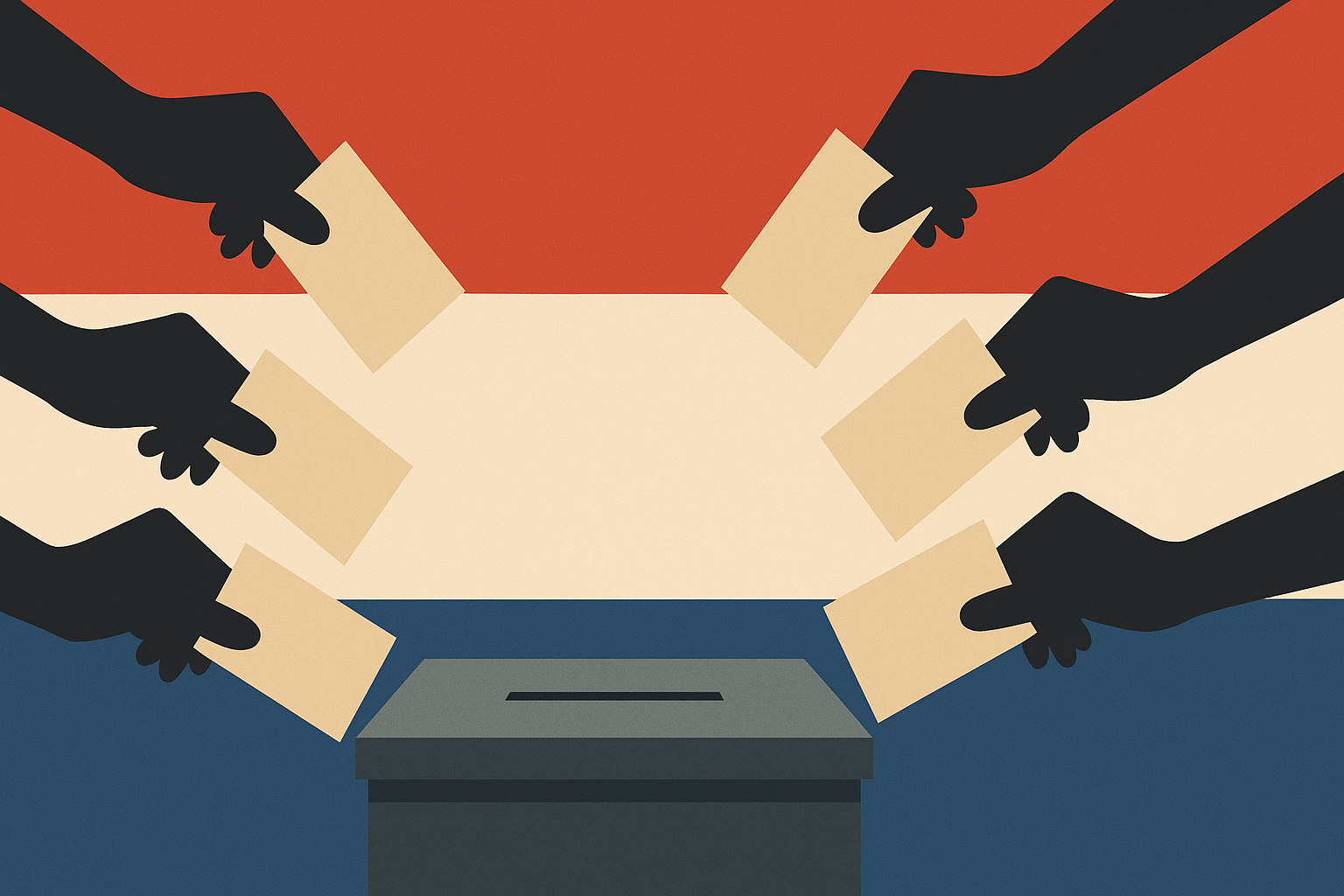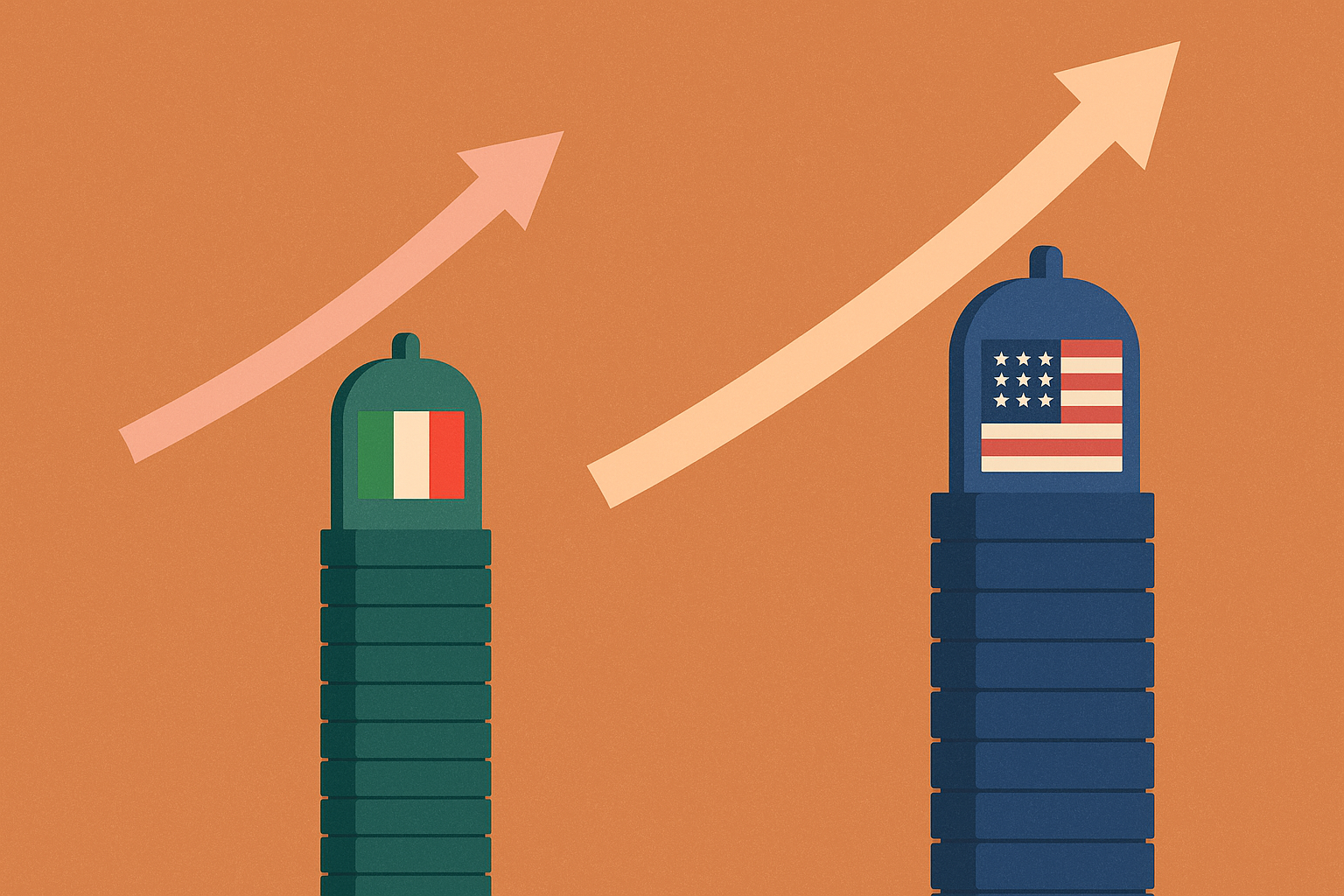The Netherlands heads to the polls this week in what could mark a decisive shift back to centrist politics, following two years of instability under a far-right-led coalition government.
The Freedom Party (PVV), led by veteran anti-Islam politician Geert Wilders, surged to power in 2023 but saw its coalition collapse in June 2025 after months of infighting. Although the PVV remains the single most popular party — polling at around 20% — two major parties, the Christian Democrats (CDA) and the Greens-Labour alliance, have pledged to exclude it from any new government.
According to a poll of polls by Tom Louwerse of Leiden University, the CDA and Greens-Labour each stand at roughly 15%, leaving the outcome too close to predict. “Voters are looking for some stability after the chaos,” said Sarah de Lange, a political scientist at the University of Amsterdam.
The Choice Between Experience and Renewal
This election presents voters with a clear contrast between two centrist contenders:
- Frans Timmermans, 64, a former European commissioner and foreign minister, who leads the combined Greens-Labour ticket.
- Henri Bontenbal, 42, the Christian Democrat leader and a relative newcomer to politics, known for his pragmatic and modest style.
Bontenbal, a Rotterdam native and devout Christian, has gained popularity as a symbol of reliability and calm leadership. Analysts compare him to former prime minister Jan Peter Balkenende, remembered for his steady governance between 2002 and 2010.
De Lange described Bontenbal as “a reliable, decent person who could lead a stable coalition that lasts more than a couple of years.”
A Fragmented Political Landscape
Coalition-building in the Netherlands remains notoriously difficult. The 150-seat lower house typically includes 15 or more parties, ranging from the pro-immigrant Denk to the far-right Forum for Democracy. Among the smaller groups are niche parties representing pensioners, animal rights activists, and even a newly formed Peace for Animals party that split over defence spending.
New entrants have frequently reshaped Dutch politics. The New Social Contract (NSC), a CDA breakaway, and the Farmer Citizen Movement (BBB) performed strongly in 2023, joining Wilders’s coalition alongside the liberal VVD. Yet internal divisions quickly surfaced.
After Wilders’s controversial 10-point migration plan — which proposed deploying the army to patrol borders and closing refugee centres — was rejected by coalition partners, he withdrew from government, triggering fresh elections.
Centrist Rebound
This collapse appears to have revitalised traditional parties. The CDA, once decimated at the polls, has regained ground by focusing on community-based governance and restoring trust in institutions. “We have problems that the government did not solve because they were too busy fighting each other,” said Tom Berendsen, CDA leader in the European Parliament.
Meanwhile, D66, a liberal and pro-EU party led by former climate minister Rob Jetten, polls between 14% and 19%. The VVD, once dominant under Mark Rutte — now NATO Secretary-General — has slumped to around 12–16%.
Despite disillusionment, half of Dutch voters remain undecided, leaving the final outcome uncertain.
Possible Coalitions
Analysts foresee two likely coalition scenarios:
- A centrist alliance of Greens-Labour, CDA, D66, and possibly the VVD.
- A centre-right grouping of CDA, VVD, D66, the farmers’ party, and JA21, a populist newcomer projected to win about 12 seats.
Coalition negotiations could extend for months, a familiar feature of Dutch politics.
The Policy Debate
The campaign has been dominated by three key issues: housing shortages, healthcare costs, and immigration pressures. Many voters blame the asylum system for strains on public services — a sentiment that even centre-left leaders like Timmermans have acknowledged by proposing caps on refugee arrivals.
If elected, Timmermans would become one of only five Socialist prime ministers in the European Union — a bloc that has broadly shifted rightward on migration, deregulation, and climate policy.
A senior Dutch official in Brussels summed up the irony of Timmermans’s comeback:
“He returned to a Netherlands that had changed profoundly — and if he comes back to the European stage, he’ll find that Brussels has changed too.”
The Dutch vote will not only determine the country’s next government but may also signal whether Europe’s populist surge is starting to lose momentum.








